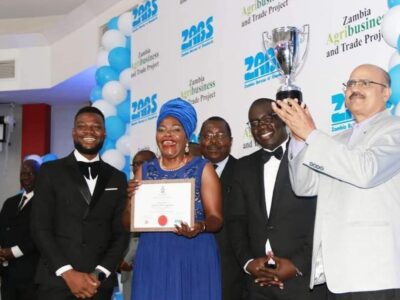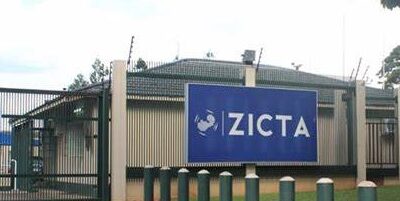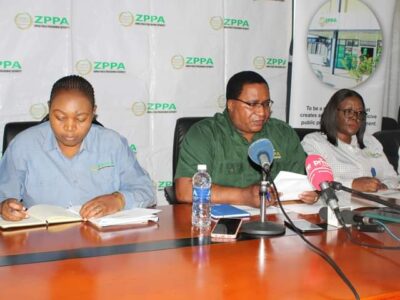Experts in Southern Africa have been urged to find solutions on how to reduce the impact of primary commodity dependence and the associated declining terms of trade.
This, Botswana Minister of Trade and Industry, Mmusi Kgafela, said should lead to the region generating higher export earnings.
Kgafela further harped on the need to explore the complex link between industrialisation and trade and how best the region can enhance competitiveness of its products.
He highlighted the need to create sustainable jobs for the burgeoning youthful population.
Kgafela said this during the opening of the 29th Meeting of the Intergovernmental Committee of Senior Officials and Experts of Southern Africa in Gaborone, Botswana on Wednesday.
He spoke on the issues of poverty and inequality in the region stating that this situation called for deeper economic integration and exploitation of regional and global value chains.
“In this endeavor, our drive for industrialisation remains paramount and needs to be pursued with the energy that it deserves,” Kgafela said.
He noted that access to modern technology was key for value addition and value chain development as manufacturing was technology driven.
Kgafela said: “thus, harnessing technology and innovation for the private sector and value chain development is key for competitiveness in the environment created by AfCFTA.”
He further stated that innovation hubs and special economic zones are key strategies and these should be engrained as part of national and regional industrialisation efforts.
Kgafela said through collaborative efforts of governments and the private sector, supporting innovation and technology development can lift Southern Africa out of poverty.
He said this capacitates the Micro Small and Medium Enterprises, youth and women-owned businesses.
“I strongly believe in the potential ability of our private sector to support elevated levels of industrialisation,” Kgafela said.
Speaking at the same event, United Nations Economic Commission for Africa (UNECA) called for an accelerated implementation of the African Continental Free Trade Area (AfCFA) for the region to achieve sustained growth.
Deputy Executive Secretary, Hanan Morsy, indicated that the pursuit of deeper regional integration, notably through AfCFTA agreements, was pivotal to the continent’s development.
Morsy pointed to the need to accelerate the implementation of the AfCFTA, noting the challenges that had slowed down its execution.
Morsy however, noted that there was a growing appetite from various sectors of the continent for the implementation of AfCFTA and harnessing technology and innovation for private sector and value chain development.
In a speech read on her behalf by UNECA Sub Regional Office for Southern Africa Director, Eunice Kamwendo, she said: “We must also remember that we shall be accountable to the next generation should such a potentially transformative initiative fail.”
She urged senior government officials and experts from Southern Africa to work together to eliminate all the intrinsic bottlenecks at both national and regional levels to expedite the implementation of AfCFTA.
“We must act with a sense of urgency to accelerate this, otherwise, it may remain a lofty and inspiring concept or case study of a failed project, our region has seen its fair share of such ideas,” Morsy said.
She spoke on the overlapping challenges that hindered Southern Africa’s ability to fully leverage its comparative advantage and endowments, to drive economic development, create jobs, raise incomes, address poverty, vulnerability and inequality.
Morsy named some of these challenges as climate change, persistent low growth in regional member states and low levels of resilience, which she said contributed to the elevated levels of poverty, inequality and vulnerability.
Other challenges were colonial legacy, the macroeconomic policies and structural reforms initiated by newly independent governments to tackle economic stagnation and poverty in the region, which Morsy said did not yield the desired results.
She also touched on issues of poverty and inequality, stating that they remained entrenched in Southern Africa and continued to pose challenges towards the achievement of a prosperous society and the Africa we want.
Speaking at the same event, African Union Southern Africa Regional Office, Claude Pierre, said the success in leveraging the full implementation of AfCFTA in relation to eradication of poverty and inequality in the region hinges not only on the government, but on every citizen and many other important stakeholders.
Southern African Development Community Secretary General, Elias Mpedi Magosi, said: “AfCFTA gives us hope that we will reach our sustainable industrialization goals. And through expanded manufacturing and deeper trading within and beyond the continent we will make a dent on poverty and inequality.”
In a speech read on her behalf by COMESA Director, Trade and Customs Division, Christopher Onyango, Secretary General, Chileshe Kapwepwe, said: “COMESA has remained actively involved in undertaking activities that support continental integration and specifically implementation of the AfCFTA,being among the 8 RECs recognized by the AU as “building blocs” towards successful implementation of the AfCFTA.”
The 29th is held under the theme “Accelerating Implementation of the AFCFTA for Inclusive Development in Southern Africa: Building on the RECs’ FTAs, and Harnessing Technology and Innovation for Private Sector and Value Chains Development.”
WARNING! All rights reserved. This material, and other digital content on this website, may not be reproduced, published, broadcast, rewritten or redistributed in whole or in part without prior express permission from ZAMBIA MONITOR.












Comments